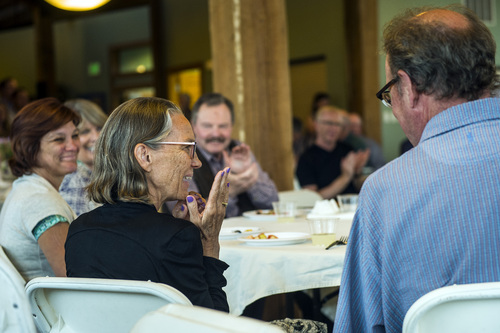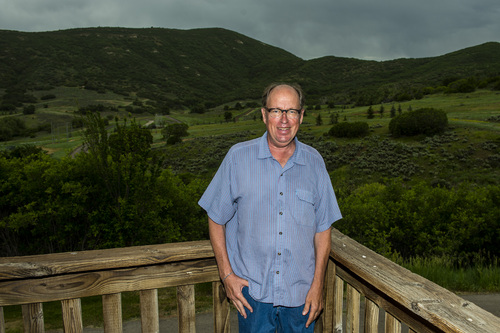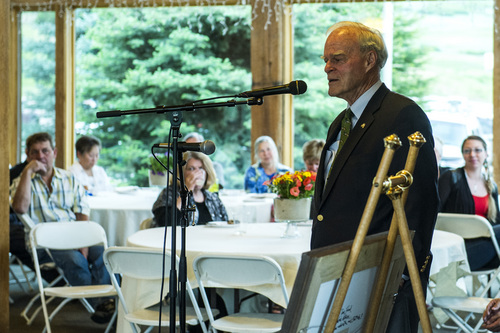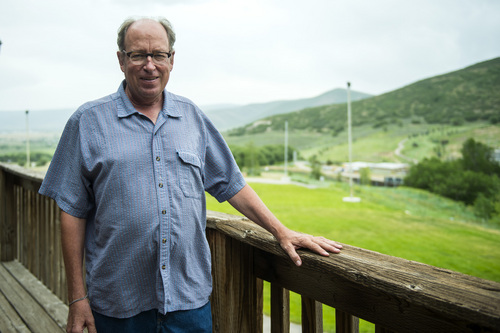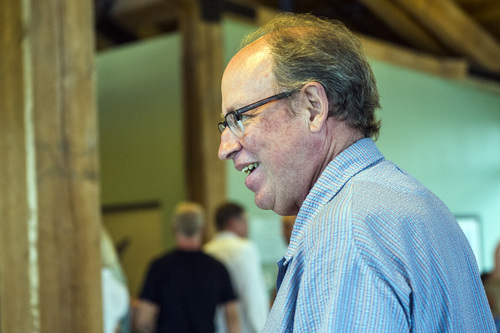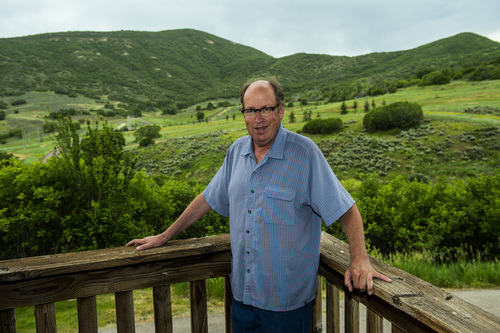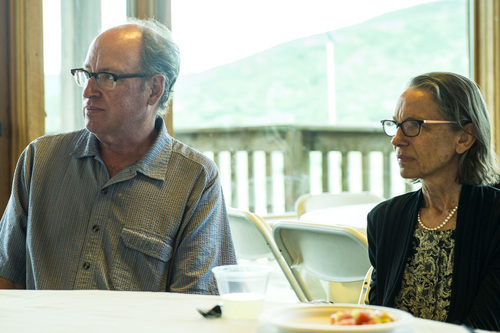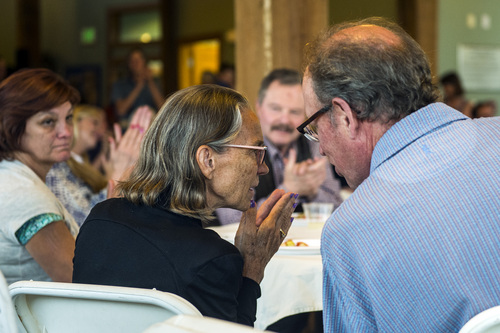This is an archived article that was published on sltrib.com in 2014, and information in the article may be outdated. It is provided only for personal research purposes and may not be reprinted.
Midway • Utah's Olympic legacy owes as much to Howard Peterson as anyone.
For the past 15 years, he has been the man behind Soldier Hollow, turning the cross-country skiing and biathlon competition venue at the 2002 Winter Olympics into a popular and profitable site for tubing and sheepdog trials — as well as elite athlete training.
Before that, as a U.S. Skiing official, his insistence that an American city bidding for the Winter Games should have long-term training facilities helped persuade the U.S. Olympic Committee to replace Anchorage with Salt Lake City as its candidate for the 1998 Games.
But now Peterson is stepping into the background, taking on a bigger challenge as he helps his wife, Susan, cope with Alzheimer's. She helped him through the tough years of building Soldier Hollow from the ground up. It's his turn to help her now.
"Howard has helped produce some Olympians in the Wasatch Valley," said Summit County Commissioner and former state Rep. David Ure, one of several speakers who lauded Peterson earlier this month at a retirement party attended by more than 100 people.
"But his greatest contribution is that Howard tried for the last 30 years to make the Olympics more athlete-oriented," he added. "He helped make the Olympics more respectable. He's made the Games more pure."
The soft-spoken Peterson doesn't take much credit for what he's accomplished in Midway, other than reflecting that "when I started in 1999, my office was a cellphone."
He deflected the praise to others, saying he was "happy Salt Lake and Utah lived up to their promises" to develop and support winter sports facilities, primarily Utah Olympic Oval in Kearns and the Utah Olympic Park complex of ski jumps, the bobsled-luge track and the freestyle aerials pool.
After the Games, those facilities became part of what is now called the Utah Olympic Legacy Foundation, supported with a $76 million endowment left by the Salt Lake Organizing Committee.
While there was talk of Soldier Hollow being part of the group, ultimately, it was decided to let the Midway facility make it on its own.
"Howard took an Olympic venue that no one really wanted, that no one could really see a future in, and made a Cinderella out of it," Ure said.
As executive vice president of athletics for the U.S. Ski & Snowboard Association and a former Nordic skier in his own right, Luke Bodensteiner is thrilled by what Peterson has forged at Soldier Hollow.
Two of his prize athletes, gold medalist Nordic combined skier Billy Demong and two-time Olympian Kikkan Randall blossomed on its winding courses. And they did it training among students at a charter school on the Soldier Hollow grounds.
"Despite the realities of having to operate a business and keep the lights on, he's always kept the focus on the athletes," Bodensteiner said, "from the kids at the charter school to the Kikkans and Billys. They know that from the way they're treated there. That's why they feel Soldier Hollow is home for them."
None of this would have been possible if Peterson had not influenced the USOC to dump Anchorage for Salt Lake, said Olympic bid executive Dave Johnson.
"Howard led the effort 100 percent that a bid city had to build facilities, and that turned out to be a good thing for Salt Lake," he said, referring to the commitment Utahns made to divert sales tax for 10 years to build those winter-sport venues.
"It resonated well with the USOC, but also with the [International Olympic Committee]," Johnson added. "It gave us substance."
That substance has been on full display since 2002 as Salt Lake has done better than any other Olympic host city in post-Games use of venues.
"It's all about legacy," said Peterson, who repeatedly told Bodensteiner, "The Olympics are coming, but they're also going away, so we owe it to the community and the sport to make the facility work."
Developing tubing lanes and bringing in events like the sheepdog show have been instrumental in keeping the foundation in the black.
But what really pleases Peterson is Soldier Hollow's 97 percent approval rating on a state park questionnaire.
"That's extra gratifying," he said, "that people find this such an enjoyable place to be."
Twitter: @sltribmikeg —
New director
Richard Hodges has been chosen to replace Howard Peterson as executive director of the Soldier Hollow Legacy Foundation.
A past member of the foundation's board, Hodges spent 10 years as volunteer president of The Utah Nordic Alliance (TUNA), Utah's largest cross-country ski organization.
He is now a private consultant who did transportation planning for groups such as Utah Transit Authority. Hodges also was a Salt Lake Organizing Commitee volunteer at Soldier Hollow for the 2002 Winter Games.
"Richard brings to this position a contagious passion for Nordic sports," said Brian Olsen, the Legacy Foundation's newly elected board chairman and a 2006 U.S. Olympian. "He brings a compelling vision for re-invigorating the venue's facilities, its programming, and its ties with the Heber Valley community."


